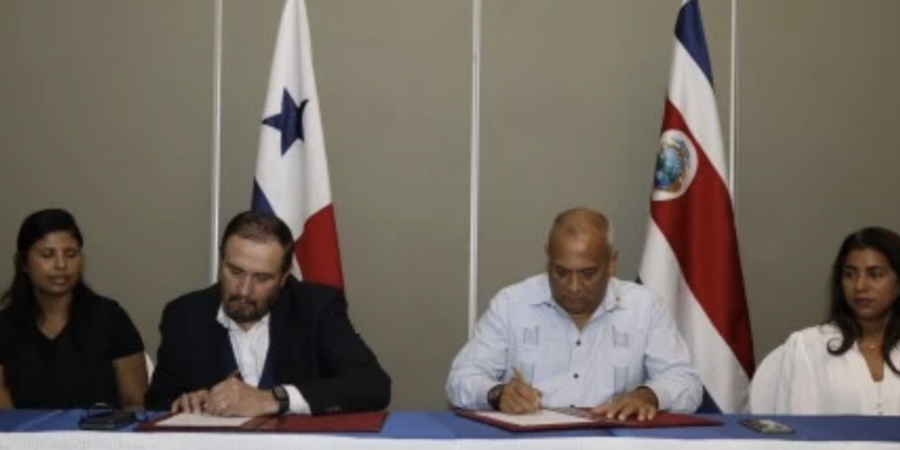Panama and Costa Rica signed their endorsement of the Strategic Action Program (SAP) of the Binational Basin of the Sixaola River, to move towards Integrated Water Resources Management (GIRH) in this Basin shared by both countries.
This firm is part of the actions to improve water governance in the Sixaola Basin of the Connecting Communities and Ecosystems Project, which is implemented by the United Nations Development Program (UNDP) and executed by the Organization for Tropical Studies (OET) with funding from the Global Environment Facility (GEF).
This ´program is established as an action plan with proposals for solutions to these problems, having five components that respond to the Thematic Groups in which they worked during the process, these in turn addressed the eight environmental problems pointed out by the Cross-Border Analysis.
For the Minister of Environment of Panama, Milciades Concepción, it is important to emphasize that the success of this Program will depend on good intergovernmental coordination, maintaining a participatory approach and counting on our communities as a source of information to optimally achieve the objectives of this program.
“The EAP of the Sixaola River Basin represents an invaluable opportunity to demonstrate our commitment to the sustainability of our natural resources by promoting the improvement of life of our communities through ecosystem services,” Concepción said.
While the Deputy Minister of Strategic Management of the Ministry of Environment and Energy (MINAE) of Costa Rica, Carlos Isaac Pérez, indicated that this program is a milestone in the cooperation between Costa Rica and Panama, it establishes strategic and specific objectives that aim to solve critical problems and crises that affect the environment and the more than 34,000 people inhabitants of the Sixaola Basin.
“The process included various perspectives of local actors: institutionality, women’s groups and representatives of indigenous peoples,” Pérez said.
